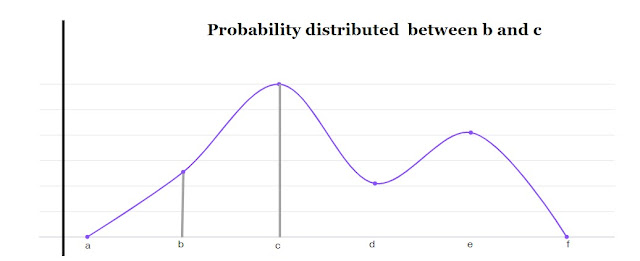Russell's Paradox
Russell's Paradox
Last few days ago I wished to do the proof of " Cantor's Theorem ", although I am familier with this theorem from my first year of college, I am not abel to recall the exact proof, so I thought to do just elaborate what its exactly say and step by step go. If you not familier with "Cantor's Theorem" I stated for you, "There is no surjective mapping from any set onto the power of that set (set of all subsets of the choosen set)" . One thing first click to my mind by the property of cardinallity of a set, that if the set contain n elements then power set of choosen set contain 2n element. If you try to imagine this mapping you see to be surjective every element of power of set of the set goes to an element of the set (may not unique) and also keep in mind that to be well-defined mapping one element of the set must be go to a unique element of the power set of the set , so if we togetherly consider them we get that if an element of a power set of the choosen set goes to ateast one element (case of bijective mapping) then cardinallity of domain codomain must be same or strict case you thought element of codomain goes to more than one element of domain in this case (here injective not hold ) domain has more than element of codomain but in our case we have n < 2n , so not in any case of above two our assumption take so its a nice proof of this amazing theorem.
But Cantor gives another a nice proof, basically its introduced by Russell which is a beautiful statement initself or say tricky or say paradox.
Now first question in our mind may be what is paradox ?
By Cambrirdge English Dictionary Paradox means " A situation or a statement that seems impossible or is difficult to understand because it contains two opposite facts or characteristics " , in simple words " The statement in itself right or wrong in nature simultaneously"
Ex - "This statement is false"
If we named this statement A = "This statement is false" . If we consider A is true then by as the statement its false, a contradiction. If we choose A is false then as by statement our statement is true , a contradiction.
You can check another natural example "Drinking a lot of water is often make you feel thirsty"
So do you agree with me paradoxes are so amazing.
Russels paradox is something similar that its say " The pardox defines A of all sets that are not members of themselves."
Here you see that if A is a member of himself then A then by paradox statement A must be set of that is not a member of itself, acontradiction. If A is not amember of himself then A is the set of those elements that are not member of itself so its contain A, a contrdiction.
How amazing is this.......
Now I give you another natural example which is similar to Russels paradox called " Barber Paradox"
Barber Paradox states that "In a city/village there is only one barber and the barber is shave themself who are not able to shave himself, then who shaves barber ?"
Just find out the beauty on then read the next portion.......
If I elastrate the barber paradox then you see "If I choose barber shave himself then then by paradox barber shave those are not able to shave himself then how its possible barber himself, a contraadiction. If I choose barber not shave himself (sounds funny) then by paradox statement barber shave those are not shave himself so barber shave himself, a contradiction."
Now you can see cantors theorem imaginates something same if I choose statement " consider a set S ={a ∈ A | a ∉ f(a)} where A is choosen the set and f: A -> P(A) a surjective mapping . Now as S is a subset of A so S ∈ P(A) since f is a well-defined mapping so ∃ an element a ∈ A such that f(a)=S. Now if I take 'a ∈ S' then by paradox statement we get 'a ∉ f(a)' as f(a)=S so 'a ∉ S', a contradiction. If I take 'a ∉ S' then by paradox statement 'a ∉ f(a)' as f(a)=S so 'a ∈ S', a contradiction. Hence there does not such surjective mapping f exists ..


Comments
Post a Comment